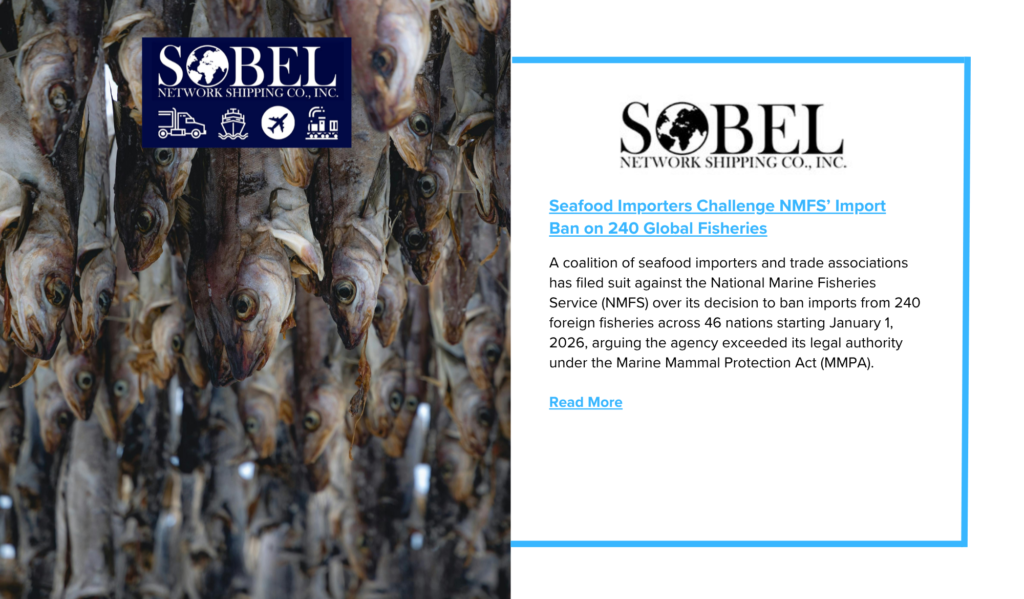A coalition of seafood importers and trade associations has filed suit against the National Marine Fisheries Service (NMFS) over its decision to ban imports from 240 foreign fisheries across 46 nations starting January 1, 2026, arguing the agency exceeded its legal authority under the Marine Mammal Protection Act (MMPA).
The National Fisheries Institute, the Restaurant Law Center, and 10 importers jointly filed the case—National Fisheries Institute v. United States (CIT #25-00223)—at the U.S. Court of International Trade, seeking a preliminary injunction to block NMFS’s “comparability findings.”
The plaintiffs contend that the NMFS’s determinations are both procedurally and substantively flawed, violating the MMPA and the Administrative Procedure Act (APA). They argue the agency effectively imposed U.S.-style regulatory frameworks on foreign fisheries instead of assessing outcomes-based compliance, as Congress intended.
Under the MMPA, seafood imports are prohibited if they come from fisheries lacking “comparable” marine mammal protection standards. NMFS’s recent findings concluded that 240 fisheries failed to meet those standards, triggering the upcoming import ban.
The lawsuit claims that NMFS’s methodology—using default biological values and conservative risk classifications when data was unavailable—was arbitrary and ignored readily available external sources such as regional observer programs, scientific studies, and peer-reviewed bycatch data.
The plaintiffs further assert that NMFS “exceeded its statutory mandate” by conditioning market access on proof of regulatory alignment with U.S. law rather than actual conservation outcomes. They argue the MMPA emphasizes “results over regulatory mimicry”, requiring only reasonable proof that foreign fishing does not cause excess marine mammal mortality.
Industry groups also allege that NMFS failed to consider the reliance interests of importers who had invested for nearly a decade in outcomes-based compliance programs under the previous regulatory standard.
In addition, the lawsuit challenges the agency’s procedural change limiting nations to four months to reapply for comparability findings after a denial—a departure from earlier rules that allowed reapplication “at any time.” The plaintiffs argue NMFS implemented this change without proper notice-and-comment rulemaking, violating APA standards.
If upheld, the import ban could have far-reaching impacts on global seafood supply chains, affecting major exporters from Asia, Latin America, and Europe that supply the U.S. market.
The case represents a pivotal moment for U.S. fisheries regulation and international trade law, testing how far environmental protection mandates can reach into global supply chains without exceeding congressional intent.


